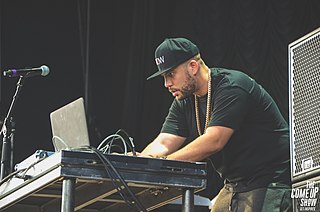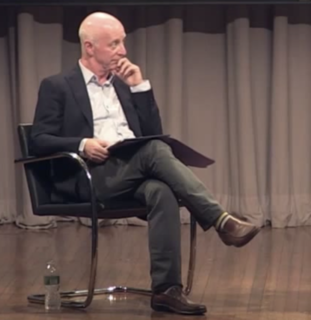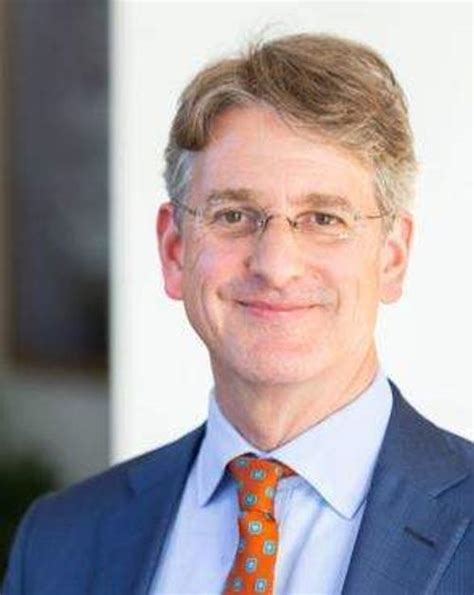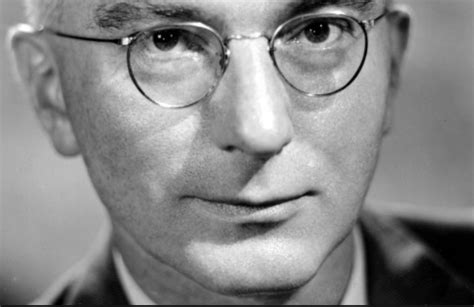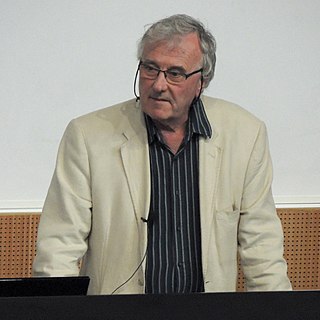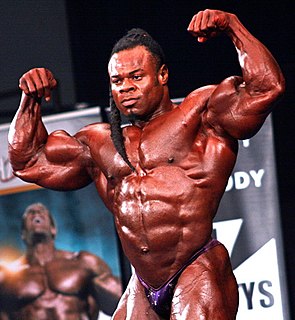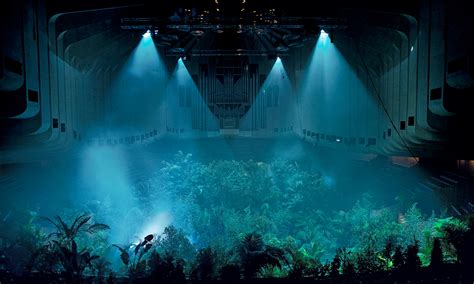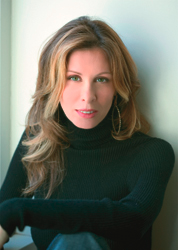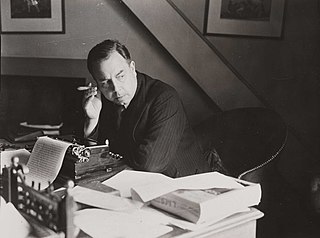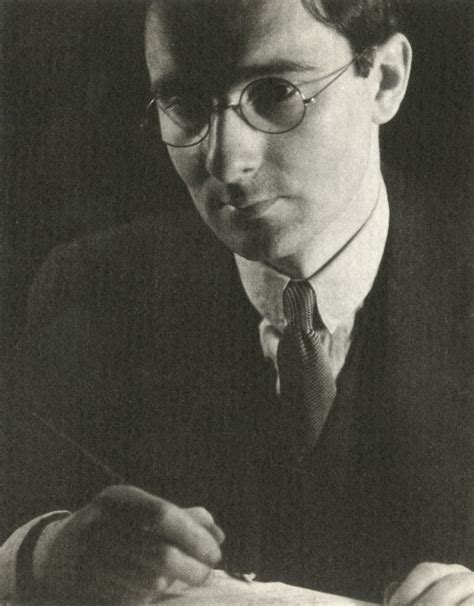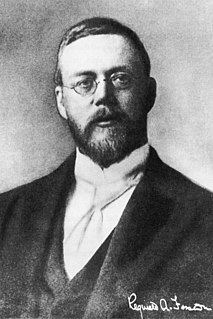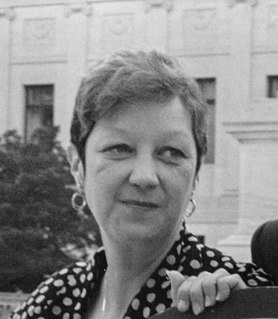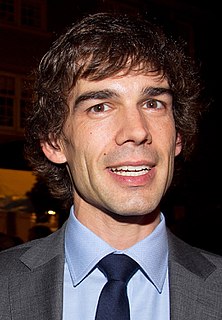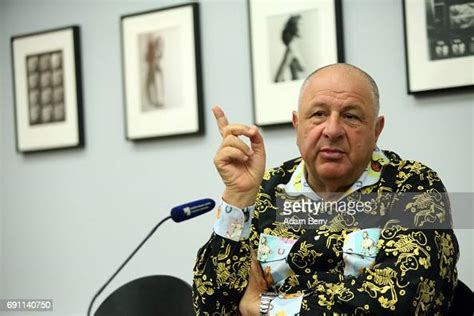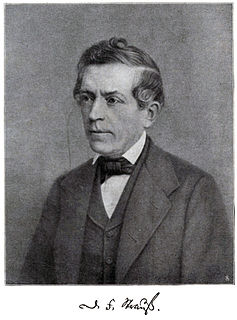Top 1200 Museum Of Natural History Quotes & Sayings - Page 2
Explore popular Museum Of Natural History quotes.
Last updated on April 21, 2025.
One dictionary that I consulted remarks that "natural history" now commonly means the study of animals and plants "in a popular and superficial way," meaning popular and superficial to be equally damning adjectives. This is related to the current tendency in the biological sciences to label every subdivision of science with a name derived from the Greek. "Ecology" is erudite and profound; while "natural history" is popular and superficial. Though, as far as I can see, both labels apply to just about the same package of goods.
What's that Regina Spektor song? Museums are like mausoleums. Having your work in a museum is something we as artists aspire to, but I don't think that's something we need to worry about while we're alive. Typically your work will end up in a museum after you're dead. And maybe that's the function of a museum. It's an archive of your work after you're dead. But while we're alive, I like to see it in places where it's connected to day-to-day life and making a difference.
I was in a group show at a museum in Torino, a lot of American artists installed in a floor of this museum. Another floor of the museum houses the most refined collection of arte povera in the world, which is perfectly selected and perfectly installed. I remember being struck by the contrast between the Italian works and the American. I would say the hallmarks of the Italian style are a poetical connection to nature and to materiality, materials, and exquisite taste. On contrast, the American work was essentially a bunch of bad-tempered, complaining kids.
Really it becomes a question of architecture. How do you move people through a space and allow them to have an experience? I, probably more than most people, suffer from museum fatigue. I always want to just stay still or sit in a chair and look at one thing, but that's not the experience of the museum.
The constancies and equivalences adumbrated work havoc with such settled topical blocks as myth and philosophy, natural reason and revelation, philosophy and religion, or the Orient with its cyclical time and Christianity with its linear history. And what is modem about the modem mind, one may ask, if Hegel, Comte, or Marx, in order to create an image of history that will support their ideological imperialism, still use the same techniques for distorting the reality of history as their Sumerian predecessors?
Darwin's book is very important and serves me as a basis in natural science for the class struggle in history. One has to put up with the crude English method of development, of course. Despite all deficiencies not only is the death-blow dealt here for the first time to 'teleology' in the natural sciences, but their rational meaning is empirically explained.
What a museum chooses to exhibit is sometimes less important than how such decisions are made and what values inform them. To have the crucial role of museum professionals usurped by self-serving tycoons in the name of economic imperative threatens not only the integrity of individual institutions but the very principle of art held in public trust.
I wonder if we are seeing a return to the object in the science-based museum. Since any visitor can go to a film like Jurassic Park and see dinosaurs reawakened more graphically than any museum could emulate, maybe a museum should be the place to have an encounter with the bony truth. Maybe some children have overdosed on simulations on their computers at home and just want to see something solid--a fact of life.
I had the chance to play with a ghost of the museum. The function and the institution are gone - it's closed - but there is still the building. I was looking for something between an experiment and an extended ritual. I asked 15 actors to be in this museum and take the position of the museum's personnel. I put this small group under certain conditions and influences, interpreted by another group of actors or by real professional performers, like a magician, a psychic, a model, a hypnotist, a singer, a psycho-dramaturge.
A writer represents his family history. My grandfather was a senator and my father served in the Roosevelt administration. In other words, I grew up in politics. This is why it seemed perfectly natural to take part in the battles of my time, and to participate in the writing of the history of my country.
Writing of history is our only heuristic principle. The Germans have a word for it, einfühlen. It is the ability to experience the past in the present and to recreate it. In my books, I have tried to recreate it in the most natural way possible: History must be integrated into the story without the weight of premonition.
Some people have criticized the United States and the United States military for guarding oil fields and not guarding the Iraqi National Museum which had priceless antiquities in it. They say that this shows a fundamental lack of respect for Iraqi history. I want to remind those people of this: The oldest relics in the museum, 5,000 or 6,000 years old. That oil is 65 million years old. You had to guard that. ... Those antiquities will only last another 5,000 or 6,000 years. When we burn that oil, those fumes will linger long after.
To a person uninstructed in natural history, his country or sea-side stroll is a walk through a gallery filled with wonderful works of art, nine-tenths of which have their faces turned to the wall. Teach him something of natural history, and you place in his hands a catalogue of those which are worth turning around. Surely our innocent pleasures are not so abundant in this life, that we can afford to despise this or any other source of them.
When I train, I love to take time off and fly to the Natural History Museum or an exhibition. I just love that. When you know your past, it will help you with your future… That’s why most of my friends are not fighters. Most of my friends are nerds like me. That’s why I have a hard time finding a girlfriend. I need someone to talk science with. I’m married to my work right now. But you never know. One day I could wake up and just do something different. Life is so unpredictable.
Our supplies of natural resources are not finite in any economic sense. Nor does past experience give reason to expect natural resources to become more scarce. Rather, if history is any guide, natural resources will progressively become less costly, hence less scarce, and will constitute a smaller proportion of our expenses in future years.
When I decided to go to art school, it wasn't necessarily something I thought I needed. No one talked about graduate school when I was an undergrad. I went on to a residency at the Studio Museum in Harlem, and that transition from Yale to the Studio Museum, that was the real beginning of my professional career.
On the theory of natural selection we can clearly understand the full meaning of that old canon in natural history, “Natura non facit saltum.” This canon, if we look only to the present inhabitants of the world, is not strictly correct, but if we include all those of past times, it must by my theory be strictly true.
I gather that a lot of the "pots" in the great museum in Baghdad, which we allowed to be looted and then gutted, are now for sale to the highest bidder on the art and archeology black market. This is good capitalism, I guess, while a museum, being a public trust and accessible to all, is anticapitalist, pretty damn near socialist in fact.
If there be a mind that, not perceiving in the narratives we have compared the fingermarks of tradition, and hence the legendary character of these evangelical anecdotes, still leans to the historical interpretation, whether natural or supernatural; that mind must be alike ignorant of the true character both of legend and of history, of the natural and the supernatural.



